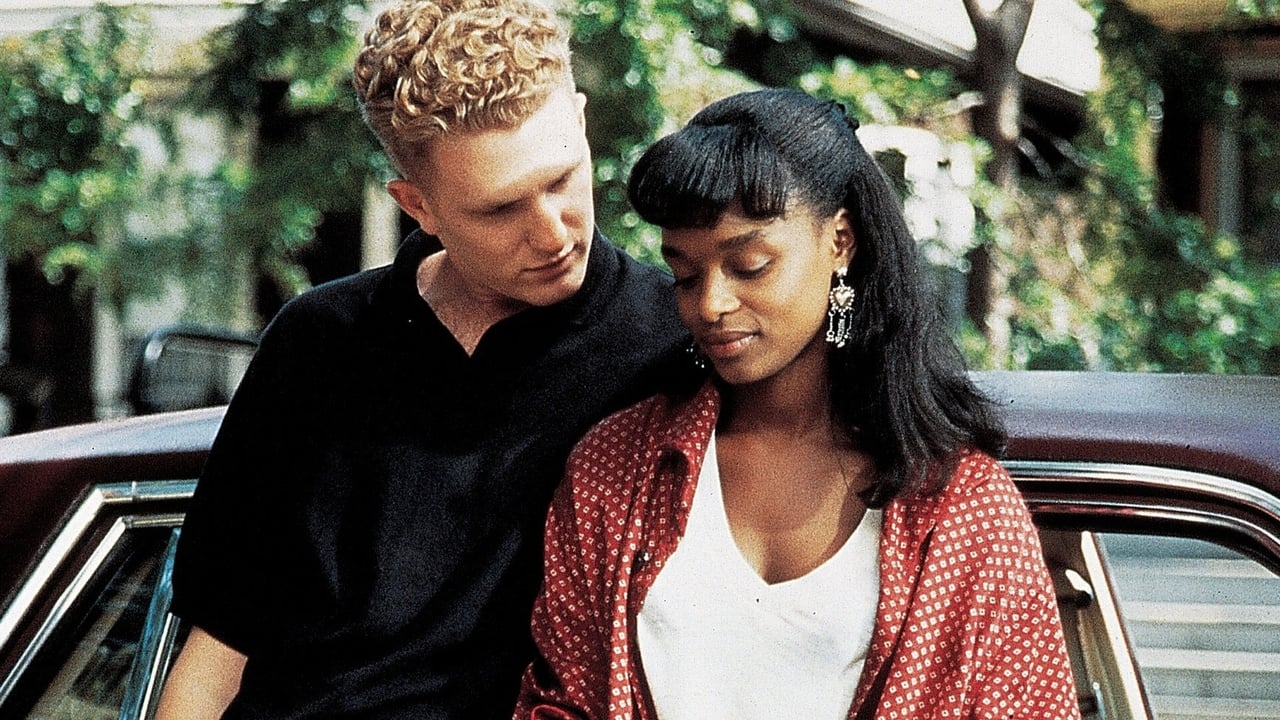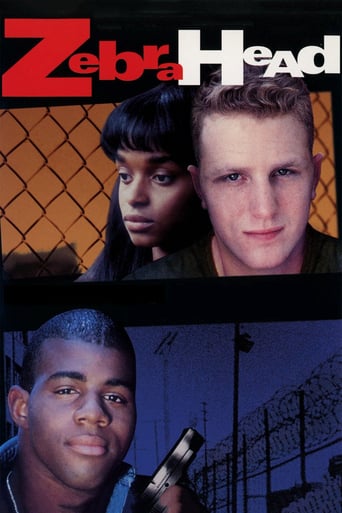

Saw this for the first time because I come from the Detroit area. Granted, I am from the Detroit area circa 1956 so the culture may have changed by 1992 but I thought the issues were similar for a white guy growing up in a black dominated inner city. The issues rung true for any of the "rust belt" cities of Detroit, Cleveland, Pittsburgh, etc. I thought Michael Rapaport was credible as were the largely black supporting cast. The school administrator who said "Stick with your tribe" reflected what most people would have said about multi-racial dating. The plot was somewhat predictable, BUT nonetheless believable and worthy of Oliver Stone's endorsement of the story by lending his name to the production. In short, it was definitely worth seeing.
... View MoreFilm Critic AS a primer on race relations, what makes Zebrahead unique, and uniquely fascinating, is its point-of-view. The film begins with an assumption largely ignored in the works of Spike Lee or John Singleton - a belief that young white Americans are being heavily influenced by urban black culture, by the music and the language and the dress, by the mania of Arsenio Hall and the magic of Michael Jordan. So the script takes an admittedly extreme example of that influence - a white teen-ager reared in the predominantly black environs of Detroit - and examines the implications. Can cultural conditioning yield tolerance and empathy as readily as it generates prejudice and hate? The question itself is hopeful, and the movie delivers a complex answer with subtlety and style. Making his feature debut, writer-director Anthony Drazan has done his homework well - he too is the product of a "culturally mixed" background, and a man with an obvious zest for research. Shooting over 60 hours of video footage in New York City high schools, Drazan used that raw material as the basis for his fictional screenplay, changing the setting to the urban fringes of the Motor City and finding his alter ego in the youthful character of Zack (Michael Rapaport), a Jewish kid who, by sheer dint of exposure, is "more on the home-boy side than the white-boy side." The result is a vibrant picture that, from the rough dialogue to the hip-hop soundtrack, from the electronic "hall-monitors" to the washroom crackheads, resonates with the ring of truth. Certainly, for Zack, his "home-boy" side is not an assumed pose but a nurtured fact - he naturally loves the music that flows around him; his best friend is black because so are many of his classmates; ditto for Nikki (N'Bushe Wright), the new girl in town, the one with the sassy manner and the sweet smile. When Zack and Nikki go out on a Saturday night, it feels natural, inevitable. Of course, that single date becomes the pebble tossed in the pond, and the rest of the film traces the tragic ripples.The revealed patterns are intriguing. The fortysomethings, the teen- agers' parents and teachers, are wholly incapable of viewing the relationship through anything but a racial lens. Some are more laissez faire than others - Zack's philandering dad (Ray Sharkey) seems to have transcended bigotry by abandoning any emotion - but all are fearful, pessimistic. The same is largely true of the kids' peers, yet there are a few telling exceptions - young adults who, as a way of life, not as a matter of principle, have genuinely broken through the colour barrier. It may be sentimental to argue, as the film does, that hope rests with the young. But it's not sentimental to show exactly how and why. Despite some small flaws (a few too many plot complications and a recurring visual image that seems tacked on), that's Drazan's real triumph here - within the turmoil and the tragedy he explores, there emerges a glint of hope that doesn't smack of wishful thinking.And hope breeds hope. One wants to believe that, by extension, the glint can become a beacon, and that a racially mixed high-school can double as an educational microcosm - a troubled hotspot that grows the seeds of a solution from within the very problems it creates. Yes, one dearly wants to believe, and Zebrahead gives us a reason. Benjamin Miller, Filmbay Editor.
... View MoreAn outstanding performance by a young Michael Rapaport (with a small but excellent late-career performance from Ray Sharkey) highlights this parable of prejudice and identity.It is, to my knowledge, the only produced screenplay by Anthony Drazan, who also directed. That is a shame as he did an outstanding job.
... View MoreInitially I suspected that this might be another rather typical examination of racial strife in high school, almost of an ABC Afterschool special caliber. However, it was quite impressive in its portrayal not only of racial tensions but of the quality of friendship between two young men. Michael Rapaport typically flashes a somewhat limited range in his roles (he has most certainly been typecast by now) but his performance here has exceptional moments - particular in the last scene of the film where his emotion is tangible without being overdone.
... View More